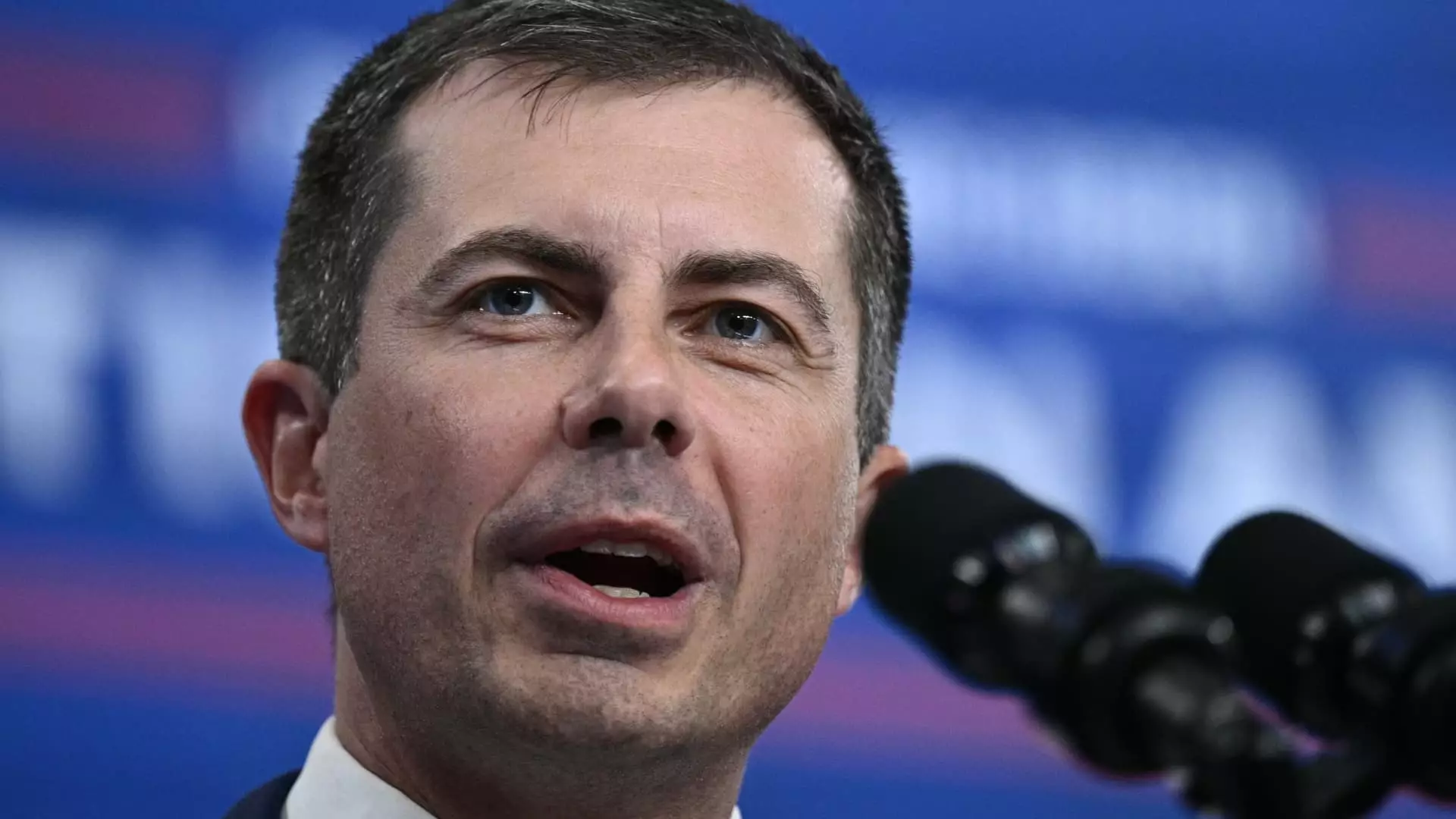In an unprecedented public confrontation, Transportation Secretary Pete Buttigieg took to the social media platform X (formerly Twitter) to address errant claims made by billionaire entrepreneur Elon Musk. This incident unfolded against the backdrop of Hurricane Helene, a storm that has left communities scrambling for aid and has sparked a series of contentious discussions regarding federal disaster response. Buttigieg’s direct appeal to Musk, who boasts over 200 million followers on the platform, reveals not only the stakes involved in the misinformation cycle but also the broader implications for communication in times of crisis.
Musk’s assertions about the Federal Aviation Administration (FAA) allegedly restricting airspace for rescue efforts in North Carolina were summarily dismissed by Buttigieg. The Transportation Secretary countered Musk’s narrative, stating, “No one is shutting down the airspace and FAA doesn’t block legitimate rescue and recovery flights.” This response highlights an essential aspect of crisis management: the need for prompt and accurate communication. The FAA, clarifying its stance, noted that while no airspace restrictions were imposed, pilots must still coordinate with local airports for landing permissions—a standard operating procedure that Musk’s message may have obscured.
Such misinformation can lead to unnecessary panic and hinder relief efforts. In the aftermath of a natural disaster, reliable information is paramount; it not only guides the actions of first responders but also alleviates the fears of affected communities. The fact that misinformation spread by influential figures like Musk can reach millions in real-time illustrates a critical vulnerability in the modern communication landscape.
The incident also shines a light on the interplay between public officials and social media influencers. As government entities like the Federal Emergency Management Agency (FEMA) and the FAA work to deliver essential services, they must contend with the rapid dissemination of misleading narratives that can shape public opinion and even jeopardize safety. Buttigieg’s engagement on X represents a proactive strategy aimed at mitigating the fallout of Musk’s comments.
Moreover, Musk’s criticisms of FEMA—claiming that the organization was not only failing to assist but actively obstructing aid—further muddy the waters. His statements reflect a trend where public figures leverage their platforms to voice discontent with established institutions, often prioritizing personal ethos over factual accuracy. This occurs in part due to Musk’s strong political affiliations; he has been a vocal supporter of the Republican Party and former President Donald Trump, creating an ideological framework that may color his interpretation of government actions.
The implications of Musk’s remarks extend beyond simple political discourse. When acrimonius allegations about federal disaster response are spread, especially during a crisis, they have the potential to undermine public confidence in essential services. In times of dire need, survivors rely on government agencies to provide timely assistance. Disparaging these organizations may discourage individuals from seeking the help they desperately require, thus exacerbating the already overwhelming aftermath of a catastrophe like Hurricane Helene.
Despite Musk’s contributions, such as donating 500 Starlink kits for recovery efforts and offering free internet services in impacted areas, his actions raise an urgent question: how do public figures balance their influence with accountability? With great power comes a profound responsibility to ensure that their statements contribute to, rather than detract from, societal well-being.
The recent back-and-forth not only underscores the challenges faced by federal agencies in responding to crises but also serves as a clarion call for responsible communication among influential figures. While social media can be a tool for positive change, it can also amplify harmful misinformation with far-reaching consequences. As public discourse continues to evolve in this digital age, maintaining a steadfast commitment to truth becomes vital.
Buttigieg’s public rebuttal of Musk’s claims illustrates the necessity of engaging with misinformation directly and transparently. In a world where falsehoods can overshadow facts, accountable rhetoric must prevail—especially when lives are at stake. The challenge ahead is not only to recover from disasters like Hurricane Helene but also to navigate the complex landscape of public perception shaped by influential voices online. Together, these elements will define the future of disaster response and the role of communication in fostering trust between the government and the public it serves.



Leave a Reply